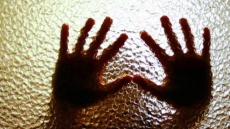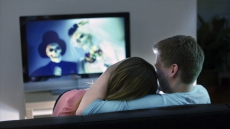Another Valentines Day is on us, and will be enthusiastically observed by those who want against the backdrop of usual noises about it being a "western custom", "against Indian traditions" and the efforts of the 'moral' vigilantes. But the opposition seems perplexing given how avidly we look to love in cinema, celebrity culture, popular literature and poetry - particularly Urdu.
There is a widespread impression that Urdu poetry, especially its most popular form of the ghazal, is overwhelmingly devoted to love. It isn't fully but a considerable and most well-known part is. For this Valentine's Day, lets find from its magnificent corpus at some famous and not so-known expressions of love in all its splendour and moods.
Lets begin one of the progenitors of the tradition in the Indian subcontinent - the incomparable Amir Khusro. Though his "Khusro darya prem ki, so ulti baki dhar/Jo ubhra so doob gaya, jo dooba huya paar" is known - and much misused (like in a recent controversial film), a couplet would be from one of his Farsi ghazals would be more apt.
Though inclined towards "ishq-e-haqiqi" (divine or sacred love) as against "ishq-e-majazi" (earthly or profane love), "Khabaram raseed imshab ki nigaar khvahi aamad/Sar-e man fida-e raah-e ki sawaar khvahi aamad (tonight I received news that you, oh beloved, would come/Be my head sacrificed to the road along which you will come)" is an interesting take on love - and the anticipation it entails.
Take "Kashish ki ishq daarad naguzaradat badinsaa/Ba-janaza gar naayi ba-mazaar khvahi aamad (Love's attraction won't leave you unmoved/You might not come to my funeral but you'll definitely visit my grave)."
And there was Mir Taqi 'Mir', who in one of his famous ghazals, stressed the strength needed in love: "Ishq ik 'Mir' bhaari pathar hai/Bojh kab natvaan se uthta hai".

Hakim Momin Khan, who was reportedly as successful in real-life amours as portraying it in his verse, also, like Khusro, described it admirably: "Maktab-e-ishq ka, 'Momin', hai nirala dastur/Us ko chuti na mili jis ko sabak yaad hua".
He also sketched its effects: "Roya karenge aap bhi pahron isi tarah/Atka kahin jo aap ka dil bhi meri tarah" and "Na taab hijr mein hai na aaram vasl mein/Kambakht dil ko chain nahin hai kisi tarah". And then there is the jealousy it may cause: "Be-parda ghair paas use baitha na dekhte/Uth jaate kaash ham bhi jahan se haya ke saath".
While the entire Dabistan-e-Lakhnau, or the Lucknow School is believed to be fixated on it, in describing the beloved, the feelings, the setting, lets take one celebrated standard-bearer.
Asrar-ul-Haq 'Majaz Lakhnavi' was not as successful in real life, but evoked its contours perfectly in verse, especially, say the first 'meeting': "Ek arz-e-vafa bhi kar na sake kuch kah na sake kuch sun na sake/Yahan ham ne zabaan hi kholi thi vahan ankh jhuki sharma bhi gaye".
Hari Manchanda 'Bani' was a poet cut off in his prime, but not before giving us more precious gems, such as this stratagem of urban love: "Ajeeb tajurba tha bheed se guzarne ka/Use bahaana mila mujh se baat karne ka".
Ghazal aficionados, especially of Mehdi Hasan, must remember him recite this couplet of the effects of a gaze: "Hua jo teer-e-nazar nimkash to kya haasil/Maza to jab hai ke seene ke aar-paar chale" before one of his famous renditions. Its actually by Kunwar Mahendra Singh Bedi 'Sahar' who was otherwise an ICS officer.
And this art is the bedrock of South Asian cinema, which freely depends on its songs from the tradition. Be it Bollywood or Lollywood, its difficult to pick one, but that Sahir Ludhianvi qawwali "Na to Karvan ki talaash hain..." from "Barsat Ki Raat" (1960) is a splendid evocation of the religious basis of love across a wide spectrum of faith.
From the latter, lets take "Zindagi mein to sabhi pyaar karte hain.." from "Azmat" (1973). "Apne jazbat mein naghmat rachane ke liye, maine dhadkan ki tarah dil mein basaya hai tujhe/ Main tasavvur bhi judaai ka bhala kaise karun, maine qismat ki lakeeron se churayaa hai tujhe," writes Qateel Shifai - what would be a better evocation of the sentiment?
In light of all this, it seems inexplicable that love and its expression attracts so much opprobrium from obscurantist sections - do they know something we don't?



